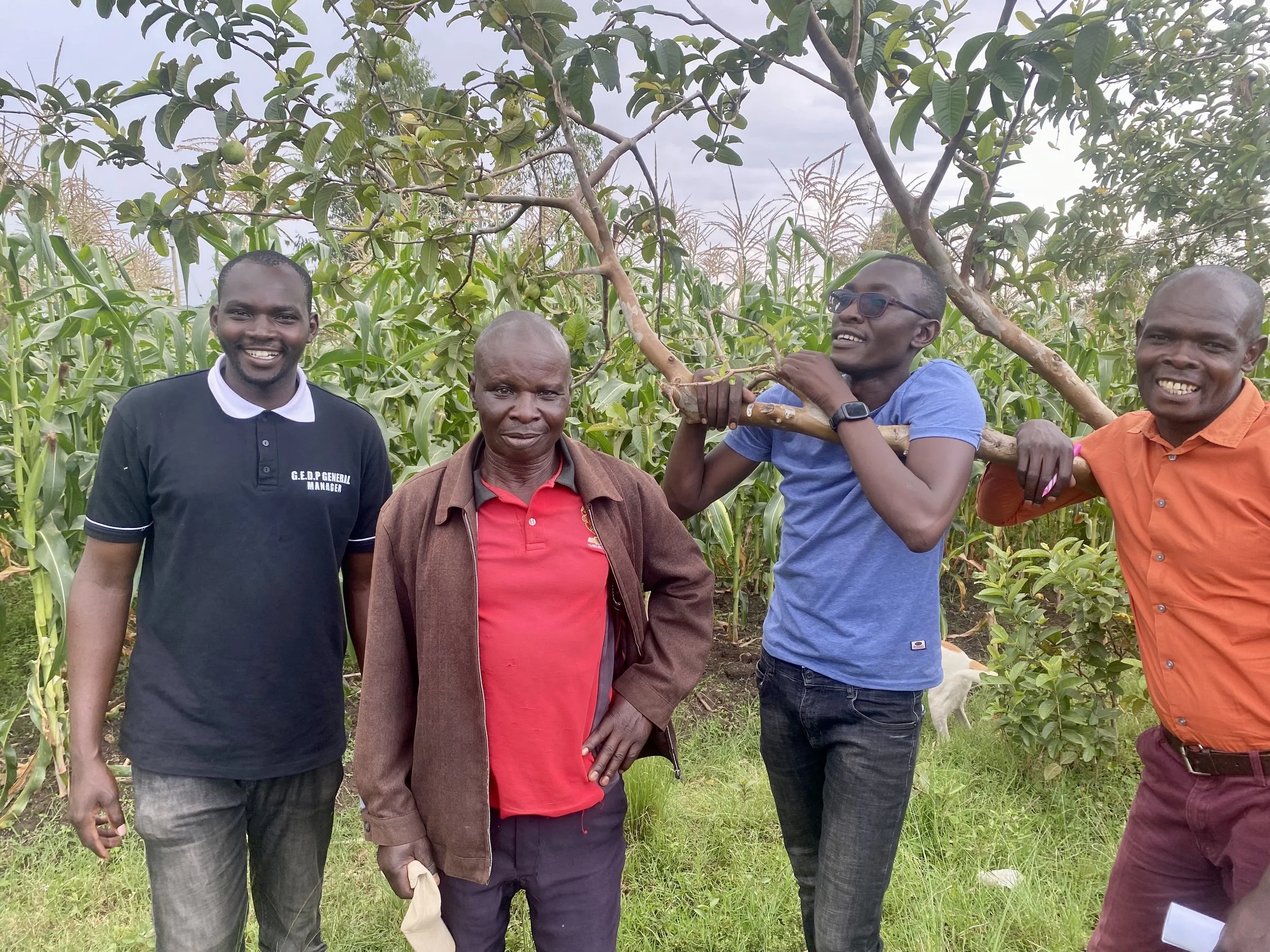'Life-changing': reaction from the first GEDP award ceremony
For our team of Gideons writers, visiting Gideons Orphanage while the world at large still suffered under the strain imposed by COVID-19 was a surreal experience. Under the guidance of its director, Newton Atela, the orphanage was much changed from when we were last there.
It now boasts new dormitories. There is a sizeable land-holding turned to the farming of subsistence crops. There is even a recently furnished guest-house which is designed to house Gideons' overseas donors.
Alongside these changes, there are the virus-enforced novelties that have now become commonplace worldwide. The students and orphans wore masks, of course. Hand sanitiser was freely flowing and new hand-washing basins have been built all over campus.
These new additions, as well as the continual threat of the Coronavirus, provided a novel backdrop to our visit. In Homa Bay county, where Gideons is situated, the threat of the virus – despite the precautions taken – is considerably more abstract than it might seem to western readers. In comparison to the UK, where everyone seems to know at least one person who has suffered from the virus, there was no-one at Gideon’s who did.
There were rumours even, though we spoke to no-one who admitted harbouring these suspicions, of an undercurrent of scepticism about the virus’ existence.
Most of those we spoke to did not have these doubts. We were told that they were most prevalent amongst those that had limited access to news outlets. That is to say, amongst those who haven’t access to electricity.
However, the fact that the scepticism exists seemed to reinforce why we were there in the first place. In western Kenya, famine, malaria, HIV, and domestic violence are much more visible threats than COVID-19 is. Indeed, this is was we witnessed. Unfortunately, we, in our two short days of visiting at Gideons, saw those who suffered at the hands of each of these dangers.
It was with the purpose of celebrating an ingenious method of alleviating one of these threats that we were drawn to Gideons.
01.02.2021: The day before
We arrived the day before the awards ceremony was to take place and the whole orphanage went about their usual activities. Children rushed between classrooms, cooks toiled in the kitchens, the orphanage’s directorial staff worked busily in their offices.
Amidst it all, preparations were ongoing. Newton met us on our arrival and his excitement was as evident as the fact that he had still a great many things to organise. As if to prove the fact, a lorry arrived soon after we did and Newton was almost immediately charged with organising the offloading of its cargo: several hundred sacks of seed.
All the while, a near-constant stream of boda bodas (motorbike taxis) ferried in Gideons alumni and other friends of the orphanage. They were greeted with hugs and high-fives. The excitement, the sense of a spectacle, was palpable.
02.02.2021: The 2020 Awards Ceremony for the GEDP
The day of the awards ceremony started very early and the morning was largely turned toward administration. Those that participated in the 2020 programme turned up to register for next year’s programme. New applicants came with the paperwork necessary for their enrolment in the next.
The awards weren’t for a couple of hours and so we were given a little time to talk with Newton about how he felt the programme had gone. Those that have read our previous article on the GEDP will know how it began.
We won't go into the finer details of the programme here (if you want to read the full article on its launch, you can do so here). In short, the programme allowed small land-holders in the area surrounding Ramba, western Kenya, to effectively work and sow their land.
The cost of labour and initial seeding, which the local landholders could not afford themselves, was covered by the orphanage in exchange for 20% of the eventual yield.
Newton - who, regular readers will know, is local to the area and knows all about its historic problems with poverty and famine - described the results as 'truly life-changing'. He knows how hard many of these land-holders have found it to effectively till their land in the past.
And certainly, for those of us witnessing, the sense of happiness was palpable amongst last year's programme enrolees. The event was nominally set up as a prize-giving but it seemed to us that competition was far from the attendees minds.
There was music, there was dancing, there were a few talks (from a delegate representing the seed provider and from a representative of the overseas charity that financed the project).
And all had jubilant smiles!
We will save the write-up of the competition's results for our next article (believe us it is worth the suspense). Suffice it to say, however, that the events up until this point of the GEDP award ceremony fully convinced us that the programme had been truly life-changing!

